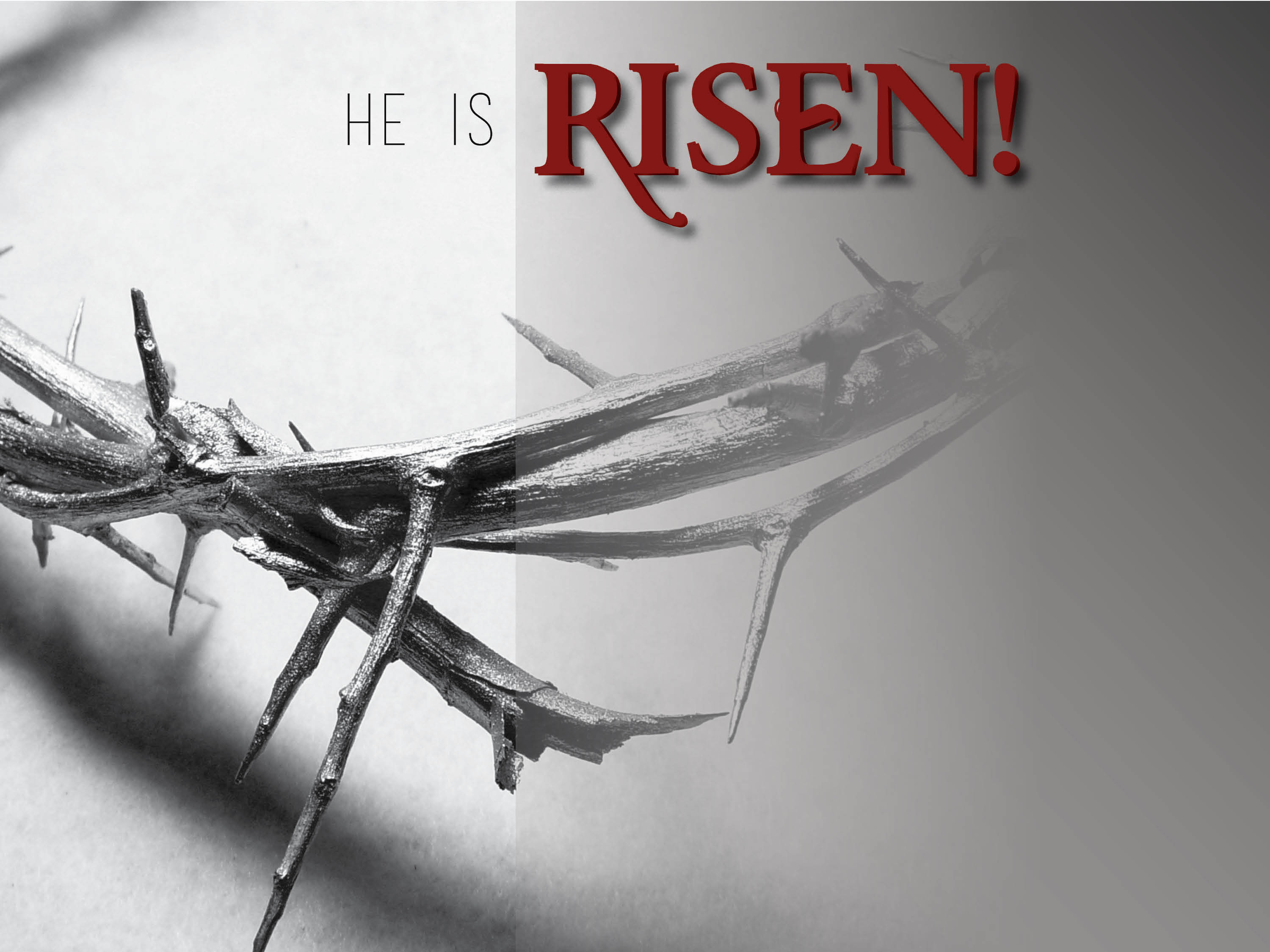
Matthew 28:1-10
Have you ever been witness to a very important event? Something that when you saw it unfold, you somehow knew that this was history being made. For many of us in America the closest we came to this was witnessing the events of 9/11 unfold on our TV screens.
The course of history changes in a moment. Sometimes we can see the change coming like a building storm, and sometimes history changes in a moment of terror or a natural disaster.
For the disciples that first Easter morning started out as another sad day, just like the day before. They probably woke up and then as the fog of the night cleared their minds, they were faced with the reality that Jesus was dead. Their Rabbi and master was dead, and they had left everything for him, what would they do now?
And as they slowly begin to wake up on that first day of the week, another earthquake occurs. Can you imagine their fear and anxiety?
Mary Magdelene and Mary the mother of Joses, who we read about in Matthew 26, were boldly walking to the tomb early in the morning. Unlike the rest of the disciples, they wanted to see Jesus’ body one last time. When they saw the angel, they were scared, but the angel quickly calms their fears and tells them not to be afraid, but to come and see the empty tomb.
The angel gives them instructions, and the Bible tells us that they left the tomb quickly “with fear and great joy” (v8). What a strange combination of emotions, but their faith overcame their fear. They had faith that Jesus was alive, their faith that took them to the open tomb that morning. The other disciples who were overcome with fear and anguish had missed out, but the Lord rewarded the faith of the two women.
But as they hurry back to the other disciples, Jesus met them on the way. They see the risen Lord, what a reward for their faith. Imagine being the first person in recorded history to see Jesus in his resurrected form.
As they see him and hear his voice. Jesus simply greets them, and that one word must have brought immeasurable peace to them. They heard the voice of the risen Lord. It was a familiar voice. It was the same voice that called them out of darkness into light.
As soon as they heard his voice, they came to him and clasped his feet and worshipped him. These two women were the first to see the resurrected Lord, and their immediate response was to fall down and worship him.
Note also that they clasped his feet, they weren’t gripping a ghost, or a mere apparition.
Then Jesus begins to speak to them and immediately calms their fears. Then he begins to give them instructions, he gives them the responsibility of spreading the word. Don’t miss this, God is a missionary God, he uses people to spread the good news. We know Matthew 28 for the Great Commission which Jesus gives his disciples just 8 verses later on in this chapter. But this is the first commissioning. Jesus takes these two women, women of faith and he commissions them with the Good news that he is alive
We read in verse 11, that the women went on their way, they obeyed Jesus.
So we have a progression;
- They saw Jesus
- They heard his voice
- They worshipped him
- They obeyed him.
This is also a description of what takes place when we meet Jesus the risen Lord.
Firstly we see Jesus by seeing his body. People see Jesus by encountering the true church of Jesus Christ, people who have died to themselves and are living wholeheartedly for the Glory of Jesus Christ. The question we need to ask ourselves, are we representing Jesus in such a way that when people look at us they see Jesus?
Secondly, as we encounter Jesus, we hear his voice by the Holy Spirit and we respond to him. The first response is to declare him as Lord, to recognize that Jesus is the Son of God.
Thirdly, the natural response to making Jesus Lord of our lives, is to worship him. Just like those ladies on the first resurrection Sunday, we will fall at his feet and worship him. We worship by singing praises, we worship by reading and meditating on his word, we worship by giving to his work and we worship by giving our time to serve him. Are you worshipping him today?
Finally after we have encountered the risen Lord, and heard his voice, out of a lifestyle of worship will come a response of obedience to his call. Jesus is calling each and every one of us to obey him. Some are called to a life of being a marketplace missionary, others are called to being an evangelist in their neighborhood introducing people to Jesus the risen Lord, others are called to being a missionary in a foreign country and some are called to train up children in the ways of the Lord, raising up the next generation of followers of Jesus.
Do you know what Jesus is telling you to do? If not, maybe you need to return to the place of true worship, not simply singing songs. Falling on your face before him and gripping his feet in desperation.
If you don’t know what it is to truly worship him, the risen Lord, then maybe you haven’t heard his voice. Maybe you need to see Jesus. Maybe you encountered Jesus a long time ago, but your relationship with him has grown cold. Come back to him today, listen to his voice, he is calling you, bow down and worship him.
Jesus is alive. Our human response is the same as the two women, we are afraid, and it seems overwhelming, but Jesus goes on to give a promise (Matthew 28:20b).
If Jesus didn’t rise from the dead, we have nothing to hold on to. The Bible is an empty document and cannot be the living word of God. The bodily resurrection of Jesus is what determines our salvation, it is our hope of glory. Because Jesus rose from the dead, we know that he has conquered death and that by placing our trust and faith in him we are assured of salvation and eternal life. Because of the resurrection, all the promises of God’s word are true! And we can stand on those promises.





